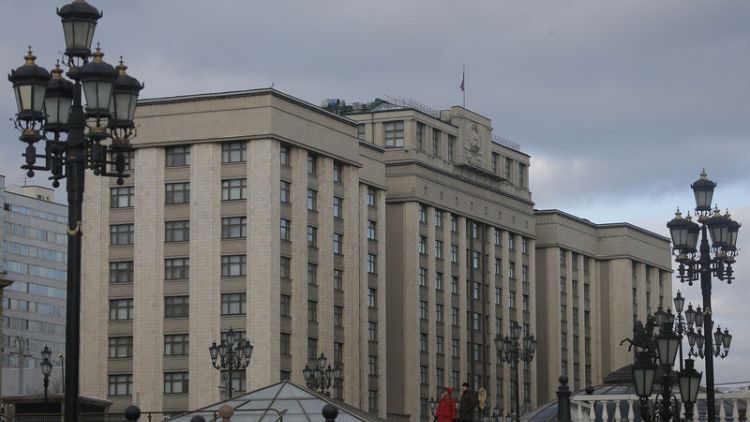MOSCOW (Reuters) - Russian lawmakers backed a proposal on Thursday mandating jail terms of up to 15 days for insulting authorities online and another prohibiting the spread of fake news, in measures the opposition says are aimed at stifling dissent.
The two bills passed their first of three readings in the 450-seat lower house of parliament with 332 and 336 votes respectively, TASS news agency reported.
One bill proposed introducing fines of up to 5,000 roubles (58 pounds) or a 15-day jail sentence on people who express crude and blatant disrespect towards government agencies, the state, the public, the Russian flag or constitution.
A second bill proposes imposing fines of up to 5,000 roubles on individuals who circulate certain kinds of fake news and up to 1 million roubles on companies that do so.
The legislation, if passed, would target "inaccurate socially significant information" circulated as if it were true that creates a risk to people's wellbeing or the risk of a widespread violation of social order or security, the parliament said on its website.
Russia has introduced tougher internet laws in the last five years, requiring search engines to delete some search results, messaging services to share encryption keys with security services and social networks to store users' personal data on servers within the country.
"These are crazy bills. How can they prohibit people from criticising the authorities?" Ilya Yashin, an opposition politician, told Reuters, adding that he expected the bills to pass into law.
The bills can still be amended and must be approved at two further readings in the lower house before they are approved by the upper house and signed into law by President Vladimir Putin.
(Reporting by Tom Balmforth and Vladimir Soldatkin; Editing by Hugh Lawson)
